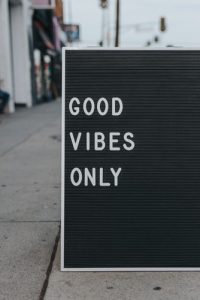Playing With Fire: A Safe Space Society
 There is something wrong with the world today, and I don’t know what it is. No, wait. There is something wrong with the world today, but deep down, we all know what it is. While the stress levels of today’s high school students can match, or exceed, that of psychiatric patients of the 1950s, what does that mean for the rest of us? At this point we should all be familiar with what a safe space is, and what it is for; if not, the explanation is simple: a safe space is a room or general place of comfort where an individual can go to in hopes of escaping the stresses of their life for a short period of time. Doesn’t sound so bad, right? Well, no, it is not all bad, there’s no doubt it can yield positive results for someone who is struggling with real stressors in their life like a recent death in the family, depression, medical/mental problems, and so on; it gives them a place to go, a quiet place to pull their head on straight when things become too much, when life keeps piling it on. Albeit, it is really easy to become addicted to something like this, just like alcohol, smoking, sex, exercise, caffeine, you name it, there is a chance it hosts an addicting quality. When you do find something you become addicted to, you can subconsciously implement it into every other part of your life, thus significantly altering your life and those around you.
There is something wrong with the world today, and I don’t know what it is. No, wait. There is something wrong with the world today, but deep down, we all know what it is. While the stress levels of today’s high school students can match, or exceed, that of psychiatric patients of the 1950s, what does that mean for the rest of us? At this point we should all be familiar with what a safe space is, and what it is for; if not, the explanation is simple: a safe space is a room or general place of comfort where an individual can go to in hopes of escaping the stresses of their life for a short period of time. Doesn’t sound so bad, right? Well, no, it is not all bad, there’s no doubt it can yield positive results for someone who is struggling with real stressors in their life like a recent death in the family, depression, medical/mental problems, and so on; it gives them a place to go, a quiet place to pull their head on straight when things become too much, when life keeps piling it on. Albeit, it is really easy to become addicted to something like this, just like alcohol, smoking, sex, exercise, caffeine, you name it, there is a chance it hosts an addicting quality. When you do find something you become addicted to, you can subconsciously implement it into every other part of your life, thus significantly altering your life and those around you.
While safe spaces stemmed from the idea to give college students a place to get away from the stress for a period of time, there is concern that this “safe” mentality has begun leaking into our general society and will thus influence the outcome of our future generations. Think about it. Let’s say you are riddled with stress, and just want to get away, so you check into one of these safe spaces, and you absolutely love the fact that it gives you a place away, but eventually, things change; you are faced with a difficult challenge or a harsh reality and a part of your mind immediately goes to your safe space. So, in reaction to this you start to safe proof everything in your life: you don’t like something you saw on the internet? So, you reported it. You didn’t like something someone said to you? So, you make a scene out of something trivial, or you try to block it out rather than voicing an opinion about something that is actually serious. You want to implement a safe reality in every aspect of your life justifying that it is for your kids. What is it really doing though? If their ability to learn how to react to a bully, or the news of their grandma dying, has been cut off, or stunted, their awareness of problem solving skills has been compromised, or maybe has even affected their fight or flight instincts because their perception of reality has been altered to what is really going on in the world.
The safe spaces were initially created to help college students escape from stresses, like hate speech, general stress and so on; but has it gone too far? King’s College in London, England, recently deployed a new group called the Safe Space Marshals. These individuals can attend any gathering hosted at the school and monitor the speech content, then proceed to flag, and subsequently shut down, the speakers if any content violates their extensive list of topics to avoid. The list includes, but is not limited to: an individual’s age, disabilities, marital or maternity or paternity status, race, religious beliefs, sexual orientation, gender identity, trans status, socio-economic status, ideology, culture. So, would they shut me down if I mentioned in a speech that I am a 23-year-old white male? No doubt. This group is paid 12 pounds an hour, plus benefits supplied by the college, to monitor the daily activity of the college, and keep the grounds a “safe space.” Would you really feel safe if even the words coming out of your mouth are being controlled by someone who is not you?
It does make sense to want to keep your students safe, as hate crimes are definitely a factor in today’s society, but there is only so much you can do seeing as hate crimes go back further than any of us can really fathom. One example of a hate speech crime going farther back than 60 years would be the Terminiello vs. Chicago Supreme Court case of 1949; Arthur Terminiello was a defrocked Catholic priest who made his anti-semitic views very well known via the radio and newspapers, thus giving him a small following. In 1946, Terminiello and a group of protesters took to the streets outside a Catholic Church where Terminiello proceeded inside to ruffle the feathers of the churchgoers by elaborating on his views regarding Jews, Communists, and so forth. In response a number of small fights broke out between the groups inside the church and protesters outside; Arthur was arrested shortly after based on a law banning riotous speech, but, in the end, the Supreme Court overturned the conviction.
Is Mathematics racist though? A professor at the University of Illinois, Rochelle Gutierrez, recently argued on a view of their own regarding the “whiteness” of Mathematics as anyone who is credited with any development to the history is predominantly white. For example, the biggest aspects of Mathematics like the unit of Pi, and the Pythagorean Theorem, were developed by the Greeks and other Europeans. In the end, the only questions we can ask are: What does Gutierrez really expect us to do? We can’t change the past. Why is this a problem? Instead of looking at the past, look to the future and work to change that instead.
But, I digress. What are some of our professors doing to help protect the stress levels of our students? Well, one Professor Rick Watson lets his students pick their grades based on a “stress reduction policy” outlined in his syllabus; he seeks only low-level mastery in his rather advanced course, his students are allowed to use laptops, textbooks, and notes at any given point in the course. If they [the students] feel like they did not receive the grade on an assignment they deserved they are welcome to email the professor and he will “correct” their grade, no questions asked. Outlined in the policy it is rather contradictory as he [Professor Watson] states the students are welcome to a number of learning tools, and even states he acknowledges the access to these materials might hinder the development of group learning skills and course mastery, he believes he is providing them the means and opportunity to master the material. While that is all well and good, how many students are going through the course without jumping on the opportunity to change their grade? Or rather, how many are taking this course based solely on the fact that they have access to the books and notes throughout the entire course?
Even our military has been exposed to more Politically Correct cultural adaptations; Matthew Freeman, an Air Force Electrical and Environmental Backshop Technician located out at Moody Air Force Base, Georgia, recently explained to me some of the factors that have changed in the military to date. While the military has not gone as far as developing safe spaces, due to occurrences such as the Air Force Basic Training Scandal, branches such as our Air Force, have adapted changes such as not being able to go anywhere without a wingman, or simply a buddy to walk with you so you are not alone, the MTIs (Military Training Instructors) are not allowed to lay a finger on you, and activities such as “jukeboxing” are no longer allowed. Jukeboxing was an act where a higher up would shove a trainee into a locker, lock the door, shove a quarter through the slots at the top of the locker then proceed to request that individual sing the anthem of that branch; if the individual in the locker could not do so they were left there. Backshop Techs, as Airman 1st Class Freeman explained, are like the lost causes of the military, they are almost left to their own devices, they speak as they wish and partake in their own activities outside work, such as one individual who sold cocaine out of his room. Other individuals are not this lucky, as the higher ups even have to avoid certain words, like saying “Happy Holidays” instead of “Merry Christmas.” Mr. Freeman took a second to comment on the idea of safe spaces outside the military world stating, “They do more harm than good as they shelter people from “harmful” opinions, and because of the vagueness of “harmful,” there can be no consistent application. The definition makes the application of a safe space arbitrary and not at all objective. So, in application, one action can be construed as offensive to one person, while not at all to another person, there is no objective stance on offensive since we are all individuals. Eventually, I believe, this would cause any remotely controversial issue/argument/opinion to be suppressed, and it is at that point where we have lost our ability to think critically and come up with tangible solutions rather than complain and act as victims. So as to my ethical stance, we all are self-owning individuals, because we own ourselves, that allows us to own property as well. Now what another self-owning individual does with their own property is none of my business, but that still does not mean I have to agree with what he is doing on that property. In the case of safe spaces, I personally do not think they are anywhere near healthy or consistent, but that still does not give me the right to violate his self-ownership to make him not have safe spaces. Instead, I can do the only ethical action which does not violate his self-ownership, that being voluntary disassociation. In the case of a college, which safe spaces are most prevalent in, I can choose to not go to that school, and not pay for their services. So in essence, I can believe that sheltering maturing individuals from controversial materials is detrimental to their health as they are not used to defending their views themselves, but I have no right to mandate to anyone what they should want to do on their property (given some exceptions of course, but that’s another topic altogether), and instead the only ethical action I can take is to not give them my money.” In all, has the PC adaptation in the military yield any benefits? Who is to say.
 In our general society, it is individuals like Jessica Davis, who have identified that there is a problem arising, and that we have to act now to correct it. Ms. Davis does believe our fight or flight instincts are diminishing due to the developing safe space mind set stating, “Soon enough people won’t know what to do in emergency situations because we have stunted our problem solving abilities, but you can’t say anything because it would no doubt offend people.” She also believes due to how thin skinned we have become, and stunted problem solving skills, our society is prone to one of two extremes when faced with a problem: extreme violence, or avoidance rather than dealing with the problem appropriately. “There is just too much hate going on.” “Too many people are speaking before they think” and “This kind of society we are turning into is making our country more vulnerable and will affect us in the long run” are a few other talking points she mentioned in our phone call.
In our general society, it is individuals like Jessica Davis, who have identified that there is a problem arising, and that we have to act now to correct it. Ms. Davis does believe our fight or flight instincts are diminishing due to the developing safe space mind set stating, “Soon enough people won’t know what to do in emergency situations because we have stunted our problem solving abilities, but you can’t say anything because it would no doubt offend people.” She also believes due to how thin skinned we have become, and stunted problem solving skills, our society is prone to one of two extremes when faced with a problem: extreme violence, or avoidance rather than dealing with the problem appropriately. “There is just too much hate going on.” “Too many people are speaking before they think” and “This kind of society we are turning into is making our country more vulnerable and will affect us in the long run” are a few other talking points she mentioned in our phone call.
In all, there is definitely something going on in our society, we can’t spend our time pretending it isn’t there, or jumping down the throats of others head first. Are there positives to the utilization of a safe space solely as a “use it when you need it, but leave it there when you are done instead of carrying it with you?” Definitely. Emily Drury, a retired Marine, commented for the article listing multiple aspects that reinforce the positive aspects of the safe space. She was bullied quite heavily in her younger years, and on the way home she would stop at her favorite spot to feel safe and pull herself together: a spot in the thickets just beyond the fences. In times of severe stress, a safe space can be quite beneficial, as it is human habit to act rather than think when someone upsets us, while a safe space shouldn’t be used for just anything, the comfort of having a place to temporarily escape has benefited the mental state of individuals such as Ms. Drury. She also commented on the use of safe spaces in a college setting and said they are not a bad thing as “college is really stressful.” This is true seeing as your grades and overall GPA will play a role in the jobs you land later on, or if you plan to transfer to a university. Although, it is a point to make if drug use or depression is playing a role in the use of a safe space. When asked what she thinks the safe space mentality will do to our future generations she stated “They would definitely start losing problem solving abilities. Honestly, in future generations the ability to have a properly working social life as well as those problem solving skills in future friendships and relationships will probably have them [future generations] being made into introverts. Not talking about their problems and just running away from everything is going to be a possible downfall in relationships as well as future jobs.”
There are so many different paths a subject like this could go, some based more of skepticism than others, so it is important we think for ourselves and what is best in the long run. So, what are we to do? Well, once an idea has been created it is impossible to snuff it out, so we really have to focus on what the safe space is good for, and what it is not. If we continue down this path we are headed into dangerous waters, and there is no telling where that might lead. Here is the question: what kind of world do you want your kids to live in?
I want to thank Emily Drury and Matthew Freeman for their contributions to this article and their service
Social Media: Instagram- @caileananderson
Facebook- Cailean Anderson
E-Mail- [email protected]
Notes: If you have any comments or concerns regarding my article I encourage you to contact me directly.
Images used:
https://unsplash.com/photos/8YbLzR3W4t4
https://unsplash.com/photos/8YbLzR3W4t4
https://unsplash.com/photos/FTNGfpYCpGM
Sites used:
https://www.nationalreview.com/2017/10/math-racist-university-illinois-professor/
https://www.nationalreview.com/2017/11/safe-space-marshals-kings-college-london-speech-police/








